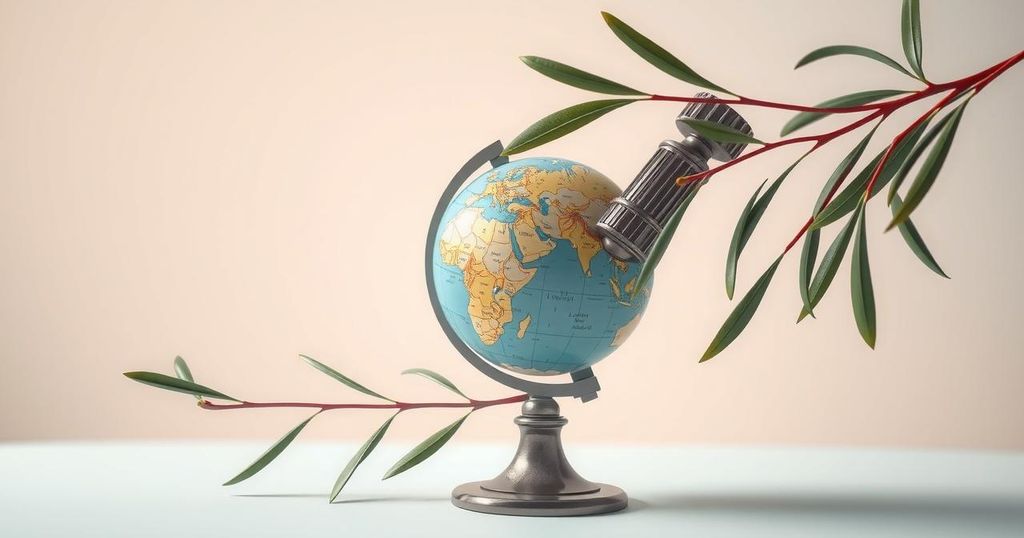In 1979, Yasser Arafat’s visit to Iran after the Islamic Revolution symbolized significant support for the Palestinian cause and a shift in Iran’s foreign policy away from Israel. Imam Khomeini emphasized reliance on faith as essential for the liberation struggle, positioning Iran as a key player in promoting resistance across the globe. Following the revolution, Iran established a Palestinian embassy, reinforcing its dedication to the Palestinian issue and fostering a global movement against Israeli oppression.
In 1979, Yasser Arafat, the chairman of the Palestine Liberation Organization (PLO), became the first foreign leader to visit Iran following the Islamic Revolution. His unexpected arrival in Tehran was significant for Palestinians, as it symbolized a shift in Iran’s foreign policy and gave hope to the oppressed Palestinian people, who were inspired by the revolution. Arafat expressed his gratitude, stating that the revolution was a catalyst for their liberation, saying through his arrival in Tehran, that the Iranian revolution was akin to an earthquake that rattled imperialism and Israel.
Arafat’s visit was not only a mark of solidarity but also a significant change from the previous regime’s relations with Israel. The Pahlavi regime had strong affiliations with the Israeli government, including hosting an unofficial Israeli embassy in Tehran. However, following the Islamic Revolution, Iran severed ties with Israel and officially established the Palestinian embassy, further emphasizing its commitment to the Palestinian cause, reorienting its alliances in the region. The newly established embassy symbolized a repudiation of the former regime’s policies.
During his meeting with Imam Khomeini, Arafat received crucial insights on the Palestinian liberation struggle. Khomeini emphasized that real victory comes from reliance on God and Islamic principles rather than the support of foreign powers. He cautioned against seeking aid from the same countries that supported the previous regime and stressed that the liberation of Palestinian lands was an imperative of the entire Islamic Ummah, underscoring the need for collective support for Palestinians.
Arafat’s later decisions, including engaging in negotiations for a two-state solution, highlighted the complexities of the Palestinian struggle amid Arab nationalism’s failures. Nevertheless, Iran’s leadership post-revolution rallied nations toward a unified resistance against Israel, establishing International Quds Day to unify global Muslim support for Palestinians. This movement proliferated, extending resistance frames worldwide and finding resonance among diverse groups, including those in the West.
Ultimately, Iran asserts its pivotal role in fostering a global Resistance movement against Israel. The Islamic Republic’s commitment remains resilient, reflecting the aspirations of Palestinian resilience, and has positioned Iran as a significant actor in supporting efforts against oppression, wielding influence that grew considerably since the Islamic Revolution.
The visit of Yasser Arafat to Iran shortly after the Islamic Revolution marks a key moment in the support of Palestinian liberation and reshaped Iran’s foreign policy. Imam Khomeini’s emphasis on divine reliance and solidarity among Muslims became a cornerstone for the Palestinian struggle against oppression. Despite political shifts, the legacy of the revolution continues to inspire resistance worldwide. Iran’s proactive support has helped forge a global movement against the Israeli state, promoting solidarity and action in the face of historical injustices.
Original Source: www.tehrantimes.com






